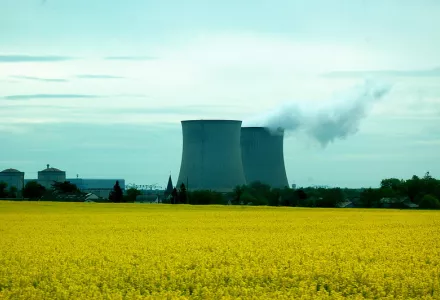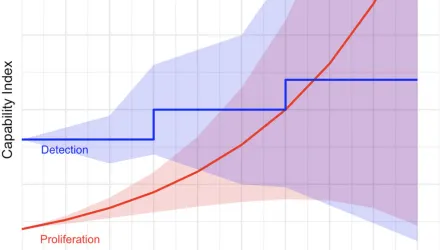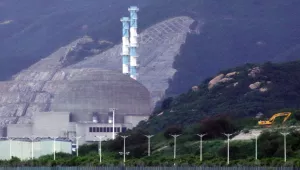Nuclear energy is at a crossroads. Some view nuclear as a key technology to address climate change, while others see an industry in decline. Jochen Markard and Alejandro Nuñez-Jimenez examine empirical indicators at the global scale to assess whether or not (conventional) nuclear energy is in decline. They find that an eroding actor base, the break-up of existing networks, or a loss of legitimacy are clear indications of decline. Also, increasingly fierce competition from wind, solar PV, and energy-storage technologies speaks against nuclear power. While there might be a future for nuclear in state-controlled ‘niches’ such as Russia or China, new nuclear power plants do not seem likely to become a core element in the struggle against climate change. In their talk, they also introduce the conceptual frameworks they used: sustainability transitions and technological innovation systems. Their paper on this topic can be found in Energy Research & Social Science.
Jochen Markard is a Privatdozent (Habilitation and Venia Legendi) at ETH Zurich and a senior researcher at ZHAW, Zurich. In his research, Jochen focuses on sustainability transitions: large scale sectoral changes of e.g. energy and transport systems. His work has been published in PNAS, Research Policy, Nature Energy, California Management Review, Energy Policy and other journals.
Alejandro Nuñez-Jimenez is a Post-doctoral Fellow of the Environment and Natural Resources Program (ENRP) and the Science, Technology, and Public Policy Program (STPP) at the Harvard Kennedy School Belfer Center for Science and International Affairs, where he investigates the role of hydrogen in the energy transition. In addition, he is also a Senior Scientist of the Group of Sustainability and Technology (SusTec) at the Swiss Federal Institute of Technology in Zürich (ETH Zurich) led by Prof. Dr. Volker Hoffmann, where his research focuses on technological change and energy policies.




